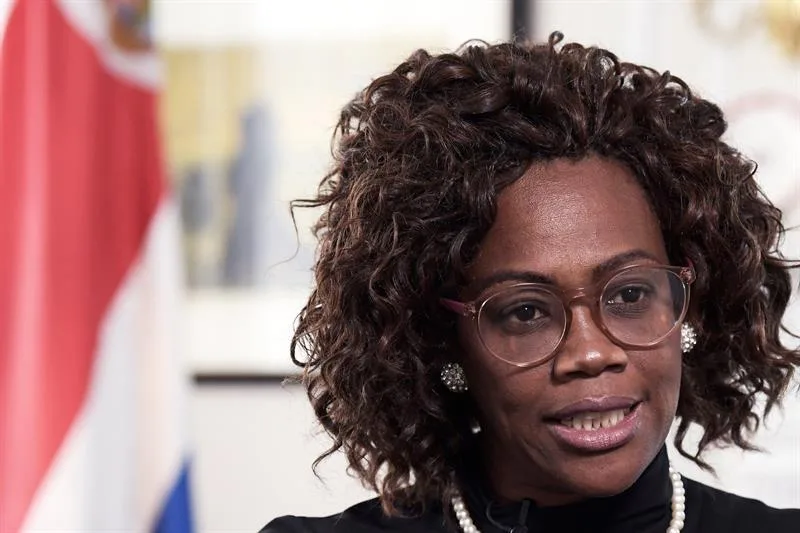RIO DE JANEIRO, BRAZIL – The Vice President of Costa Rica, Epsy Campbell Barr, defended on Tuesday a multilateral and regional approach to address the “forced migration as a result of social exclusion” experienced in Central America.
The Vice President stressed the need to address this problem beyond the countries of the Northern Triangle (Guatemala, El Salvador, and Honduras), from where most of the migrants who have arrived en masse to the southern border of the United States leave and called for a “multilateral approach” that looks at the entire region of Central America and the Caribbean.

“We must go deeper there and have strategic partners,” Campbell Barr said today in a talk she held with former Costa Rican President Luis Guillermo Solis during the sixth Hemispheric Security Conference held by Florida International University (FIU).
In this virtual event organized by the Jack D. Gordon Institute for Public Policy as well as the Kimberly Center for Latin America and the Caribbean, of which Solis is interim director, both centers belonging to FIU, the vice president stressed that “immigration limitations are not going to be enough because people want to resolve their lives”.
“The reality in our region is that unfulfilled needs make people look for solutions and move, within countries or outside countries,” she said.
She also recalled that for many of these migrants, especially those who move on foot, crossing the U.S. border is a difficult goal, and that is when they turn to look to the “other north”, to countries such as Panama and Costa Rica, which are home to important immigrant communities.
“Costa Rica received a lot of pressure from Venezuelan migrants, and before that from Colombians,” said Campbell Barr.
She highlighted the important contributions to the national economy of migrant communities. However, she said that it is not possible that the “burden of migrations” falls only on the Central American country, which already has difficulties for the public treasury to reach the entire population.
“There has to be a look from the multilateral perspective”, from which Costa Rica is looked at as a receiving country of immigrants, invoked Campbell Barr, who since 2018 is the first Afro-descendant woman to hold the Vice Presidency in the Central American country.
HUMAN TRAFFICKING ON THE INTERNATIONAL AGENDA
Campbell Barr and Solís put on the table the problem of human trafficking and smuggling linked to migration, which is linked to organized crime networks and drug trafficking, and which must be on the international agenda, they said.
“And we have to put a face to it,” claimed the vice president, who said that the situations of the vulnerability of women and children due to forced migration are even more serious in the case of “Afro-descendant women.”
She added that human trafficking and the exploitation of minors caused by forced migration should be treated as a central issue, with goals, emergency, and denunciation mechanisms.
“Either we address it regionally, or we will continue to witness this reality,” she warned.
She also warned that drug trafficking threatens countries’ sovereignty and that to combat it, “all debates” on the drug problem should not be discarded.
THE “FALLACY” OF UNIVERSAL POLICIES
She recalled that drug networks attract young people with little to lose, hence the importance of “differentiated policies” for less disadvantaged population groups in order “not to widen the gap”.
“Universality is a fallacy in Central America,” she said and then stressed that universal policies do not even reach 50% of the population. Therefore, human indicators remain low among women, especially if they are indigenous or Afro-descendants.
She pointed out that in Costa Rica, they are closely following what is happening in Nicaragua under Daniel Ortega, as well as the path of Nayib Bukele’s government in El Salvador, where the Legislative Assembly, with a large pro-government majority, voted to dismiss five magistrates of the Constitutional Chamber of the Supreme Court of Justice (CSJ) and the Attorney General.
She stated that in these “complex times,” democracy continues to be the best system of government.

